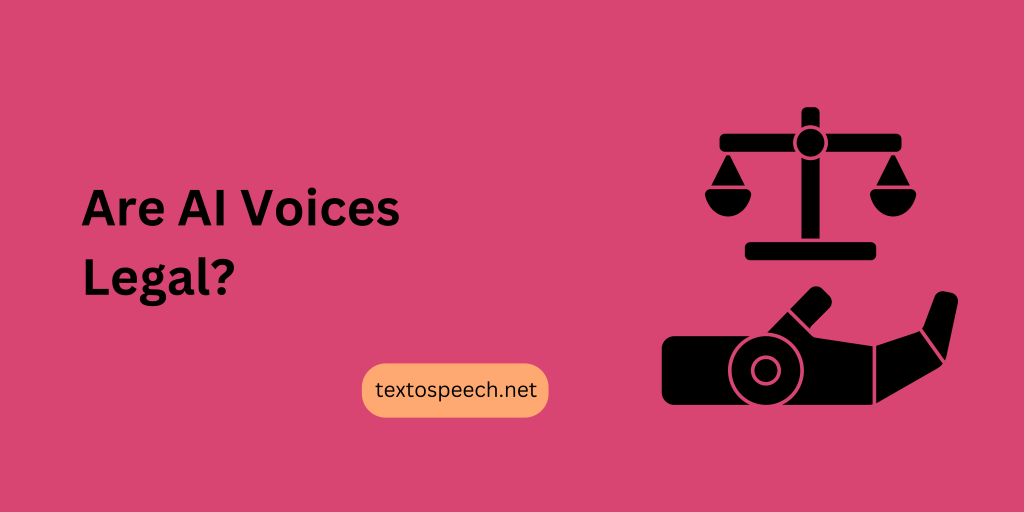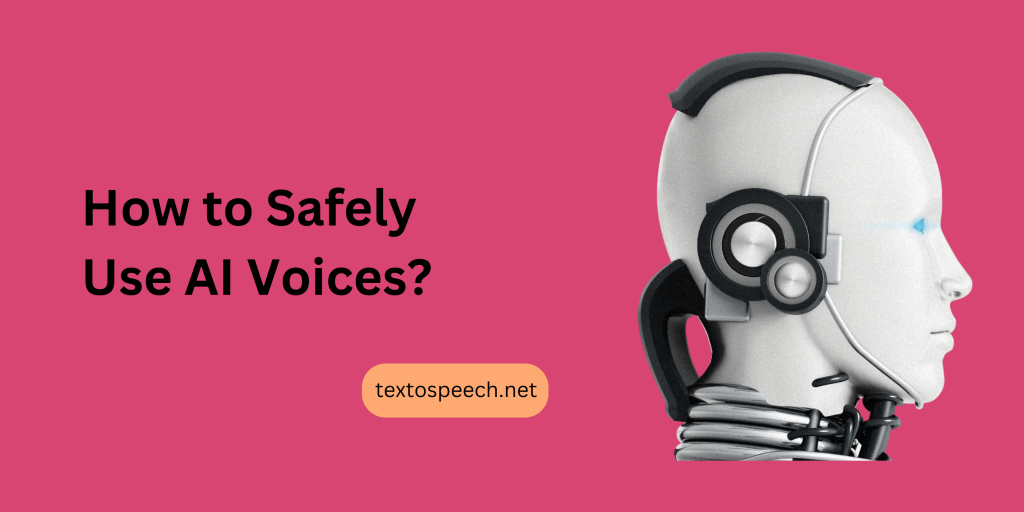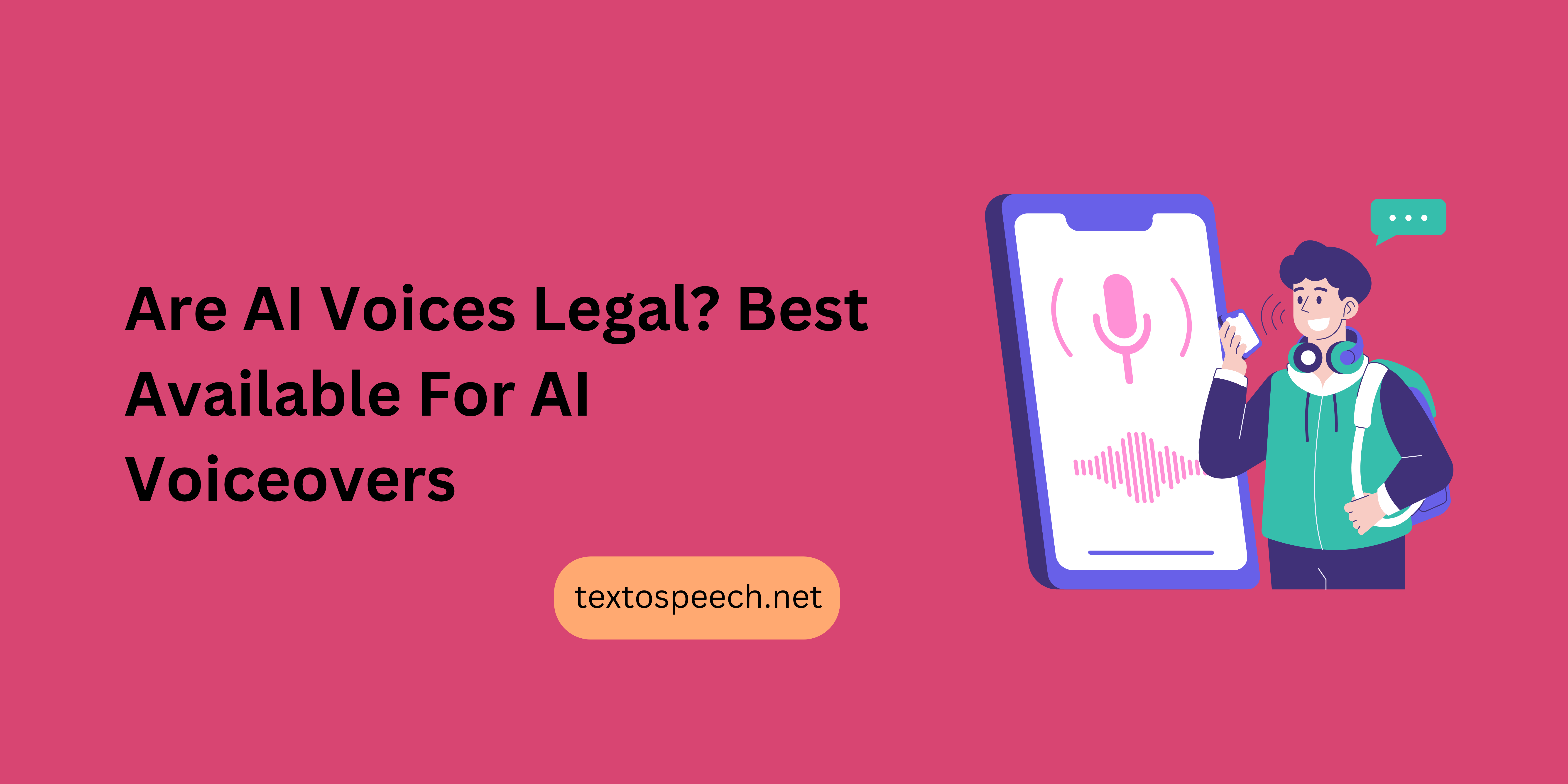Artificial intelligence (AI) voices are synthesized voices created by technology to mimic human speech. As these voices become more common in applications like audiobooks, advertisements, and virtual assistants, questions about their legality have surfaced. Are they truly legal to use in all these areas?
In this article, we will discuss Are AI Voices Legal? Best Available For AI Voiceovers. We’ll explore the legal frameworks governing the use of AI voices, highlight some of the best AI voiceover technologies, and examine the ethical considerations involved in their use.
Understanding AI Voices
Understanding AI voices starts with how artificial intelligence mimics human speech. AI learns from real voices to create its own speech. This technology is found in gadgets like smartphones and in video games.
The legality of AI voices is often questioned. Are AI voices legal? Yes, they are, but there are rules to ensure they’re used properly. Companies must follow laws about privacy and copyright.
AI voices are more than just technology. They involve ethical considerations too. As AI voices become more common, knowing their legal and ethical boundaries is essential.
Are AI Voices Legal?

Yes, generally, using AI-generated voices is legal. However, there are some important things to consider. If the AI voice mimics a real person’s voice, you might need permission from that person. This is to avoid any issues with rights and privacy.
Another point to consider is how you use these AI voices. If you use them to mislead or harm others, that could be illegal. Laws about using AI voices can vary from one place to another. So, it’s a good idea to check the laws in your area.
Overall, using AI voices is usually fine as long as you respect others’ rights and follow local laws. Remember, how and where you use the AI voice can make a big difference in whether it’s legal.
Ethical Considerations
Ethical considerations are important when thinking about using AI voices. People often ask, Are AI voices legal? The answer depends on how and where they are used. Laws in different countries can vary, so it’s crucial to understand local regulations.
Using AI voices involves thinking about rights and privacy. If the voice of a real person is copied by an AI without permission, it could lead to legal issues. It’s important to get consent to avoid violating someone’s rights.
Finally, being ethical with AI voices means being honest about their use. Letting people know when they are listening to an AI voice helps maintain trust and transparency. This practice respects the audience and follows ethical guidelines.
Best AI Voiceover Tools Available
- TextToSpeech.net – Offers a user-friendly interface with a variety of voice options, making it simple for users to generate clear and natural-sounding speech from text.
- Google Text-to-Speech – This tool integrates seamlessly with Google’s services, providing high-quality voice output that supports multiple languages and accents.
- Amazon Polly – Known for lifelike voices, Amazon Polly uses deep learning technologies to synthesize natural-sounding speech, supporting a wide range of languages.
- IBM Watson Text to Speech – Features advanced AI to produce highly natural voice output, making it ideal for businesses and developers looking to create more engaging applications.
- Microsoft Azure Text to Speech – Offers a variety of voices and languages, with customization options that allow users to tailor the speech to fit their needs.
How to Safely Use AI Voices?

To safely use AI voices, it’s essential to ensure proper attribution and permissions when generating content. Always verify the source of the AI voice and its usage rights to avoid copyright infringement issues.
Additionally, be cautious when using AI voices for sensitive or confidential information, as they may not guarantee privacy.Moreover, consider the ethical implications of AI voice technology, such as the potential for misuse or manipulation.
Avoid using AI voices to deceive or mislead audiences, and prioritize transparency in your content creation process. By being mindful of these considerations, you can effectively utilize AI voices while minimizing risks and ensuring responsible use.
FAQs
Are AI voices legal to use for voiceovers?
Yes, AI voices are legal to use for voiceovers as long as you have the proper rights and licenses. Many AI voice providers offer licenses for commercial use, allowing businesses to utilize AI-generated voices for various purposes, including voiceovers for videos, advertisements, and more.
How can I ensure that the AI voice I use for voiceovers is legal?
To ensure that the AI voice you use for voiceovers is legal, it’s essential to choose a reputable AI voice provider that offers clear licensing terms. Make sure to review the terms of service and licensing agreements provided by the AI voice platform to understand the usage rights and any restrictions associated with the voice.
What are some of the best AI voice options available for voiceovers?
There are several excellent AI voice options available for voiceovers, including those offered by leading AI voice providers like Google Cloud Text-to-Speech, Amazon Polly, and IBM Watson Text to Speech. These platforms offer a range of high-quality voices with various accents, tones, and languages, allowing you to find the perfect voice for your voiceover needs.
Can AI voices be customized for specific projects?
Yes, many AI voice platforms offer customization options that allow users to tailor the voice to suit their specific project requirements. You can often adjust parameters such as pitch, speed, and emphasis to create a voice that aligns perfectly with your brand and messaging. Additionally, some platforms offer the ability to train custom AI voices based on existing recordings for a truly unique voiceover experience.
Conclusion
AI voices are generally legal, but their use can raise ethical concerns regarding consent and authenticity. While synthesized voices offer efficiency and flexibility for voiceovers, their legality hinges on proper licensing and permissions. To ensure compliance, businesses should use reputable AI voice platforms and adhere to copyright laws. Textospeech emerges as the top choice for voiceovers due to its affordability and versatility.

